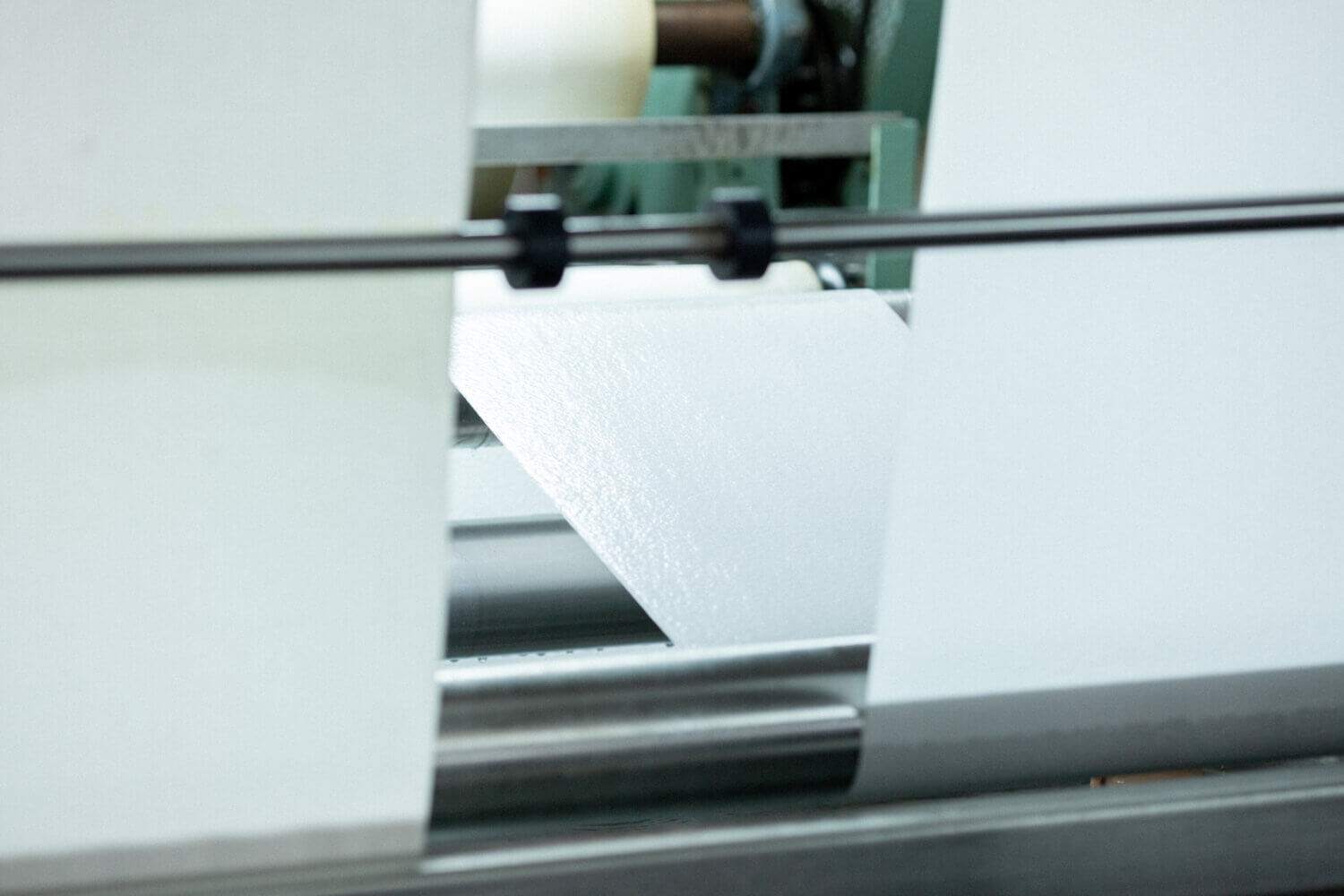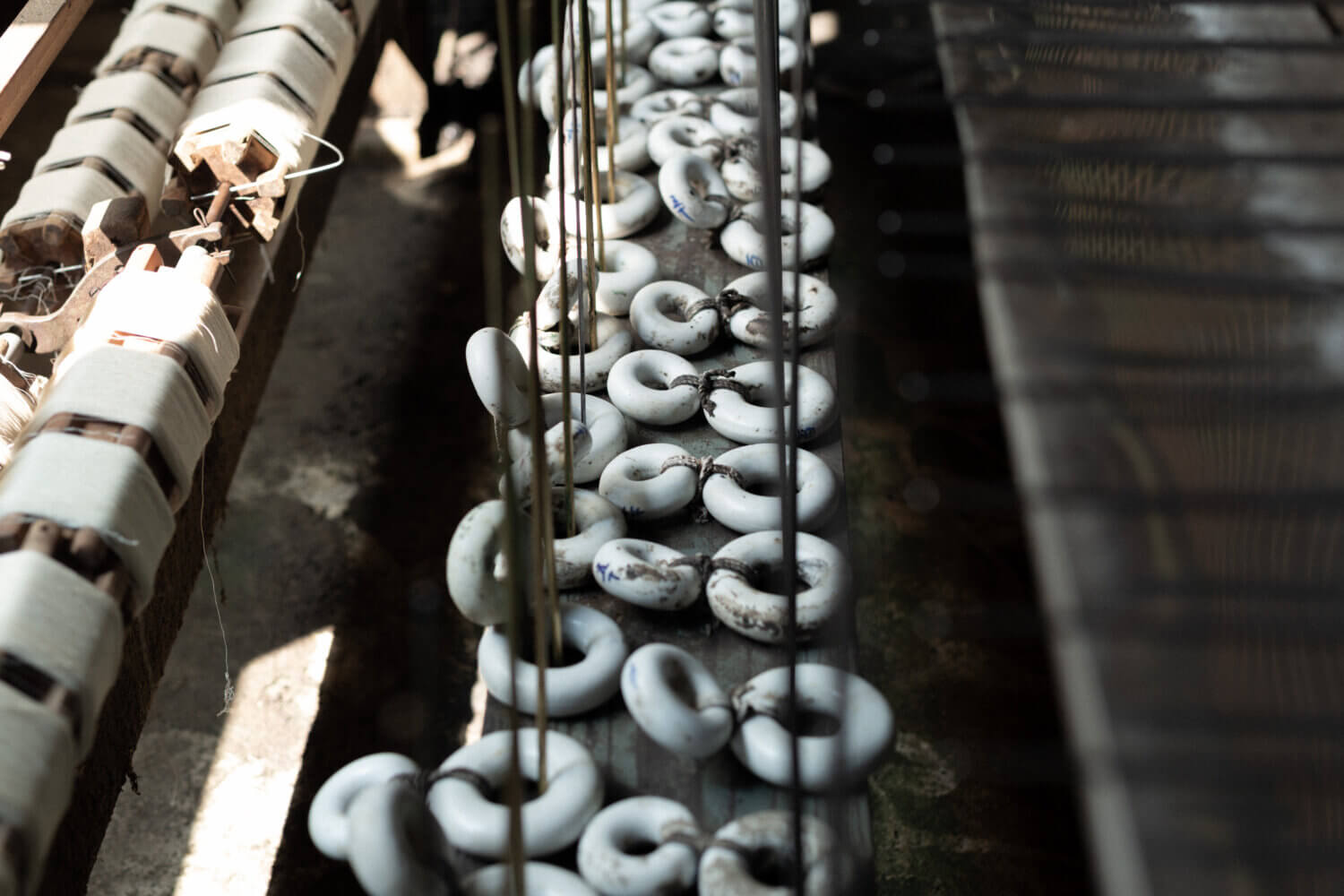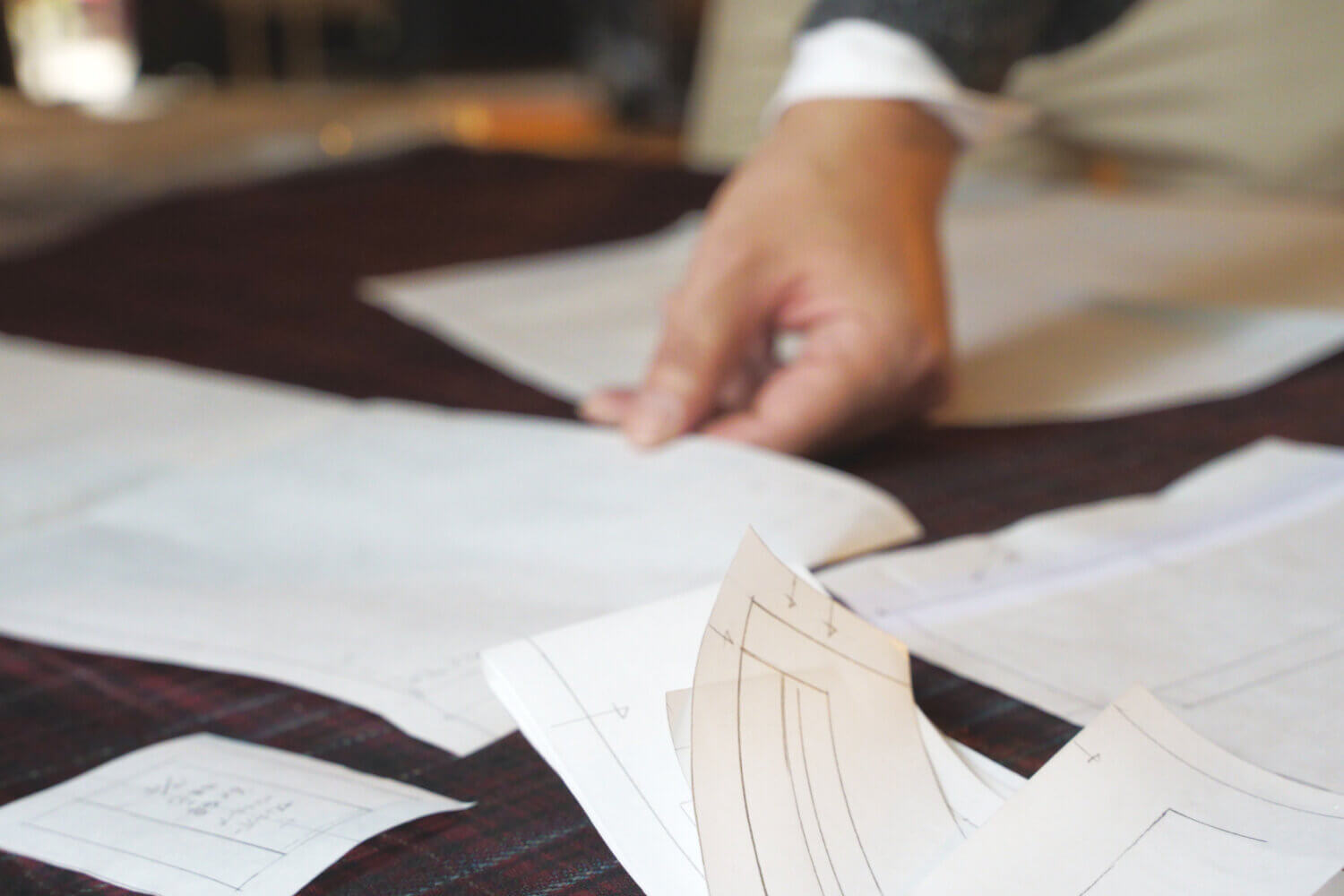「弁当忘れても傘忘れるな」。ウラニシと呼ばれる日本海側特有の気候で、晴れていても一転して雨が降る。散歩をするお年寄りたちの手には、いつなんどきも高い確率で傘が握られている。傘に当たっても音がしないほどに細かな雨を「ぴりぴり」と表現することにこだわりがあって、「ぽつぽつ」や「ぱらぱら」とは違うと教えられる。少し空が荒れたら、みぞれ・あられ・ひょうが降る。「都会で言うところのひょうなんて、こっちではみぞれみたいなサイズですよ」。言われてワイパーが大粒のみぞれを弾くのを眺める。いつも低い位置にいる雲がさらに降りてきて、身体にのしかかるようだ。ついさっきまで眩しいくらい月に照らされていたのに。ああ、ウラニシだ。この気候風土が、暮らしのかたちを作り、言葉を生み、織物を育てた。湿度に恵まれた気候は、糸に優しい。
“Don’t forget to bring your umbrella even if you leave your lunch behind”. This climate is peculiar to the Sea of Japan, called uranishi, and even if it’s sunny, there’s a good chance it will suddenly rain again. If you see an elderly person out for a walk, most of them will have an umbrella in their hands.They use the standard onomatopoeic words for rain, potsupotsu and parapara, but as an old lady explained, in local dialect piripiri is rain so fine it makes no noise falling on an umbrella. As becomes this fickle climate, people here are naturally particular with words interpreting the weather.
If the weather becomes inclement, sleet or hail will fall. “The size of hail in the city is like sleet here”. I watch the wipers in my car swoosh away the heavy sleet on the windscreen. I feel that the clouds, which these days are always low, are pushing downwards on my body. Until just a moment ago, the moon lit up the sky so brightly. “Oh! So this is uranishi”. This is the climate that created the shape of our lives, gave birth to our words, and cultivated our textiles. The wet climate is thread-friendly.








